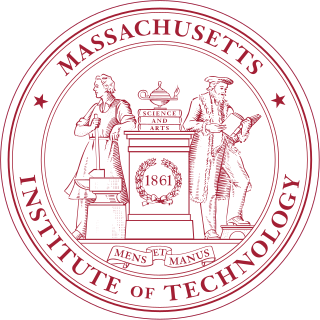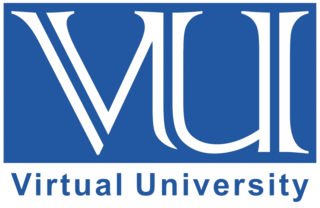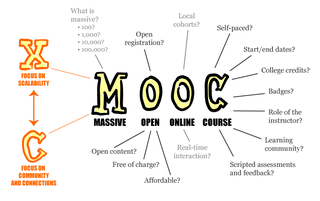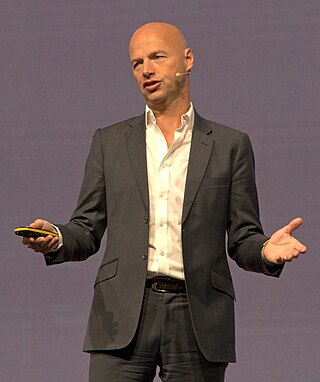
The Massachusetts Institute of Technology (MIT) is a private land-grant research university in Cambridge, Massachusetts. Established in 1861, MIT has played a significant role in the development of many areas of modern technology and science.

MIT OpenCourseWare is an initiative of the Massachusetts Institute of Technology (MIT) to publish all of the educational materials from its undergraduate- and graduate-level courses online, freely and openly available to anyone, anywhere. The project was announced on April 4, 2001, and uses Creative Commons Attribution-NonCommercial-ShareAlike license. The program was originally funded by the William and Flora Hewlett Foundation, the Andrew W. Mellon Foundation, and MIT. MIT OpenCourseWare is supported by MIT, corporate underwriting, major gifts, and donations from site visitors. The initiative inspired a number of other institutions to make their course materials available as open educational resources.

The Illinois Mathematics and Science Academy, or IMSA, is a three-year residential public secondary education institution in Aurora, Illinois, United States, with an enrollment of approximately 650 students.

The Teaching Company, doing business as Wondrium, is a media production company that produces educational, video and audio content in the form of courses, documentaries, series under two content brands – Wondrium and The Great Courses. The company distributes their content globally through a mix of Direct to Consumer models such as their streaming service Wondrium.com and TheGreatCourses.com, as well distribution through third party platforms like Audible, Amazon and Roku.
Streaming television is the digital distribution of television content, such as television shows, as streaming media delivered over the Internet. Streaming television stands in contrast to dedicated terrestrial television delivered by over-the-air aerial systems, cable television, and/or satellite television systems.

Open educational resources (OER) are teaching, learning, and research materials intentionally created and licensed to be free for the end user to own, share, and in most cases, modify. The term "OER" describes publicly accessible materials and resources for any user to use, re-mix, improve, and redistribute under some licenses. These are designed to reduce accessibility barriers by implementing best practices in teaching and to be adapted for local unique contexts.

Walter Hendrik Gustav Lewin is a Dutch astrophysicist and retired professor of physics at the Massachusetts Institute of Technology. Lewin earned his doctorate in nuclear physics in 1965 at the Delft University of Technology and was a member of MIT's physics faculty for 43 years beginning in 1966 until his retirement in 2009.

William Gilbert Strang, usually known as simply Gilbert Strang or Gil Strang, is an American mathematician, with contributions to finite element theory, the calculus of variations, wavelet analysis and linear algebra. He has made many contributions to mathematics education, including publishing mathematics textbooks. Strang was the MathWorks Professor of Mathematics at the Massachusetts Institute of Technology. He taught Linear Algebra, Computational Science, and Engineering, Learning from Data, and his lectures are freely available through MIT OpenCourseWare.

GeoGebra is an interactive geometry, algebra, statistics and calculus application, intended for learning and teaching mathematics and science from primary school to university level. GeoGebra is available on multiple platforms, with apps for desktops, tablets and web. It is owned by Byju's.

Archnet is a collaborative digital humanities project focused on Islamic architecture and the built environment of Muslim societies. Conceptualized in 1998 and originally developed at the MIT School of Architecture and Planning in co-operation with the Aga Khan Trust for Culture. It has been maintained by the Aga Khan Documentation Center at MIT and the Aga Khan Trust for Culture since 2011.

The Virtual University of Pakistan (VU) is a public university with its headquarters in M.A Jinnah Campus, Defence Road, Off Raiwind Road Lahore, Punjab, Pakistan. It mainly focuses on providing distant learning programs through utilization of Information and Communication Technology (ICT) tools.
OpenCourseWare (OCW) are course lessons created at universities and published for free via the Internet. OCW projects first appeared in the late 1990s, and after gaining traction in Europe and then the United States have become a worldwide means of delivering educational content.
Khan Academy is an American non-profit educational organization created in 2006 by Sal Khan. Its goal is creating a set of online tools that help educate students. The organization produces short lessons in the form of videos. Its website also includes supplementary practice exercises and materials for educators. It has produced over 8,000 video lessons teaching a wide spectrum of academic subjects, originally focusing on mathematics and sciences. All resources are available for free to users of the website and application.

Salman Amin "Sal" Khan is an Bangladeshi-American educator and the founder of Khan Academy, a free online non-profit educational platform and an organization with which he has produced over 6,500 video lessons teaching a wide spectrum of academic subjects, originally focusing on mathematics and science. He is also the founder of Khan Lab School, a brick-and-mortar private school in Mountain View, California.
Big Think is a multimedia web portal founded in 2007 by Victoria Brown and Peter Hopkins. The website is a collection of interviews, presentations, and round table discussions with experts from a wide range of fields. Victoria Brown is the acting CEO and Peter Hopkins is the acting president of the company.

A massive open online course or an open online course is an online course aimed at unlimited participation and open access via the Web. In addition to traditional course materials, such as filmed lectures, readings, and problem sets, many MOOCs provide interactive courses with user forums or social media discussions to support community interactions among students, professors, and teaching assistants (TAs), as well as immediate feedback to quick quizzes and assignments. MOOCs are a widely researched development in distance education, first introduced in 2008, that emerged as a popular mode of learning in 2012, a year called the "Year of the MOOC".

Udacity, Inc. is an American for-profit educational organization founded by Sebastian Thrun, David Stavens, and Mike Sokolsky offering massive open online courses.

edX is an American massive open online course (MOOC) provider created by Harvard and MIT. It hosts online university-level courses in a wide range of disciplines to a worldwide student body, including some courses at no charge. It also conducts research into learning based on how people use its platform. edX runs on the free Open edX open-source software platform. 2U is the parent company, with edX operating as its global online learning platform and primary brand for products and services.
MITx is the massive open online course (MOOC) program at Massachusetts Institute of Technology. A constituent program of MIT's Office of Digital Learning, MITx produces MOOCs from MIT departments and faculty. Prior to 2U's acquisition of edX, MITx courses appeared there. After the acquisition, courses appeared on MIT's own site. MITx also supports residential experiments with scalable learning technologies and research on digital learning. MOOCs offered through edX by MITx are open-enrollment and free to take. In September 2012, edX and MITx introduced the option to receive an ID verified certificate on some courses.
The Jeffrey Epstein VI Foundation was a private foundation established in 2000 by New York convicted sex offender and financier Jeffrey Epstein. Officially registered as J. Epstein VI Foundation, the "VI" stands for Virgin Islands, where the foundation was based and Epstein owned a private island. The foundation's board included Cecile de Jongh, wife of the former governor of the United States Virgin Islands, John de Jongh.














